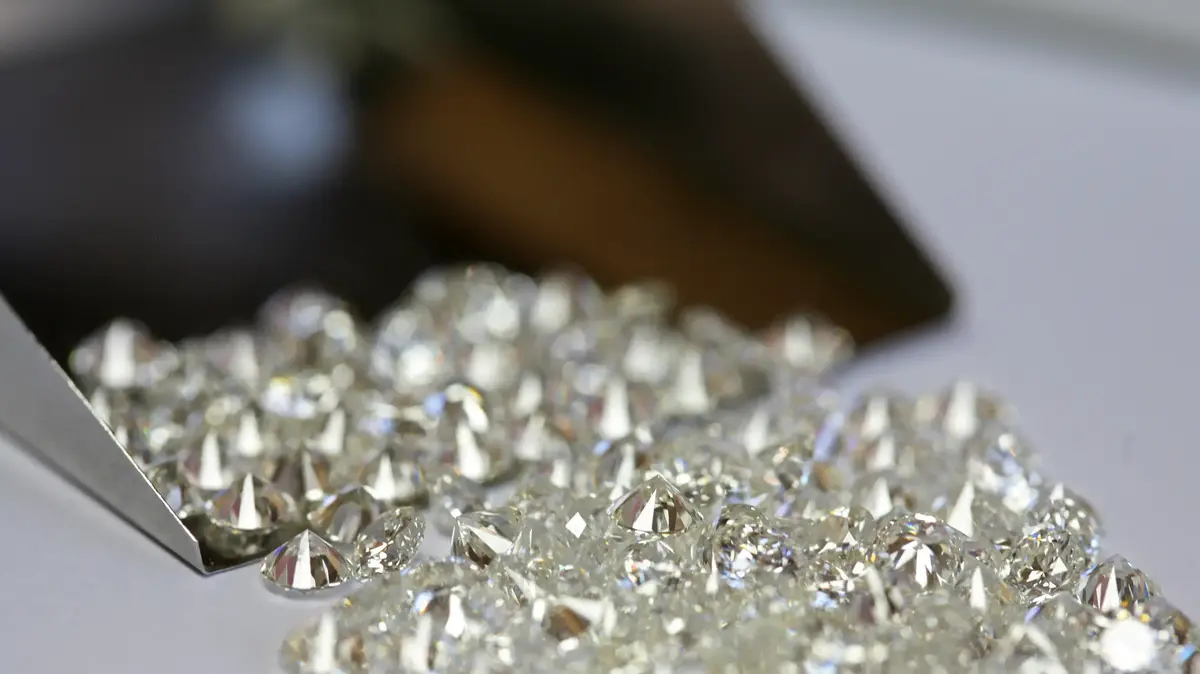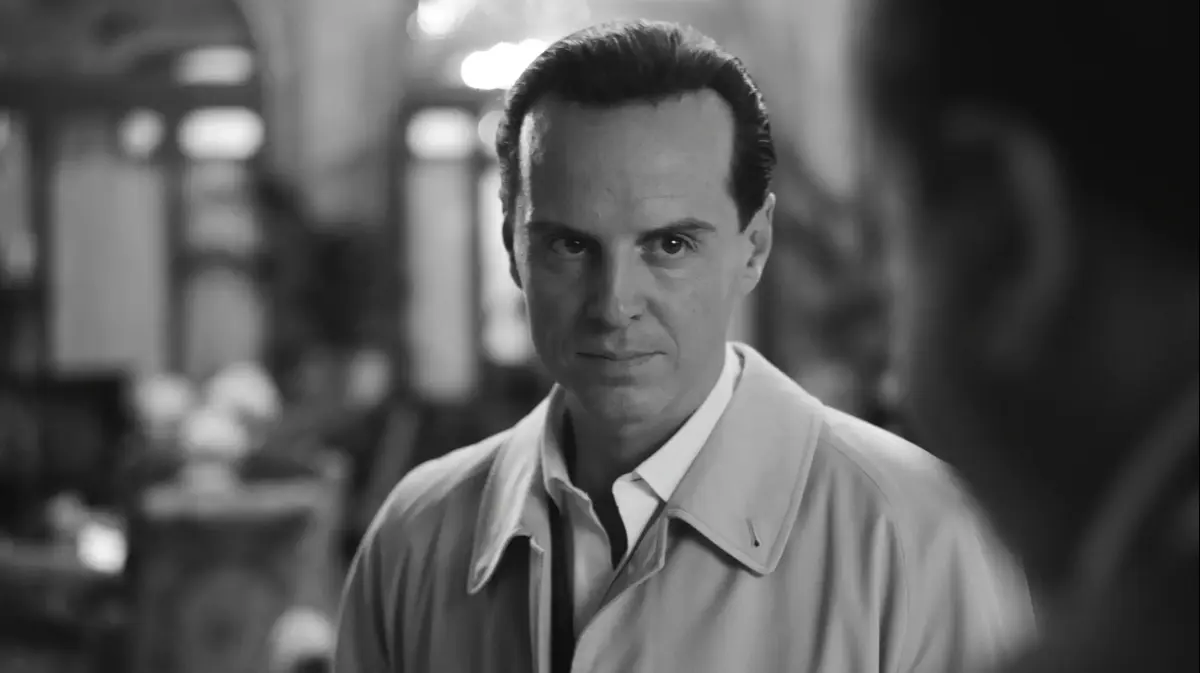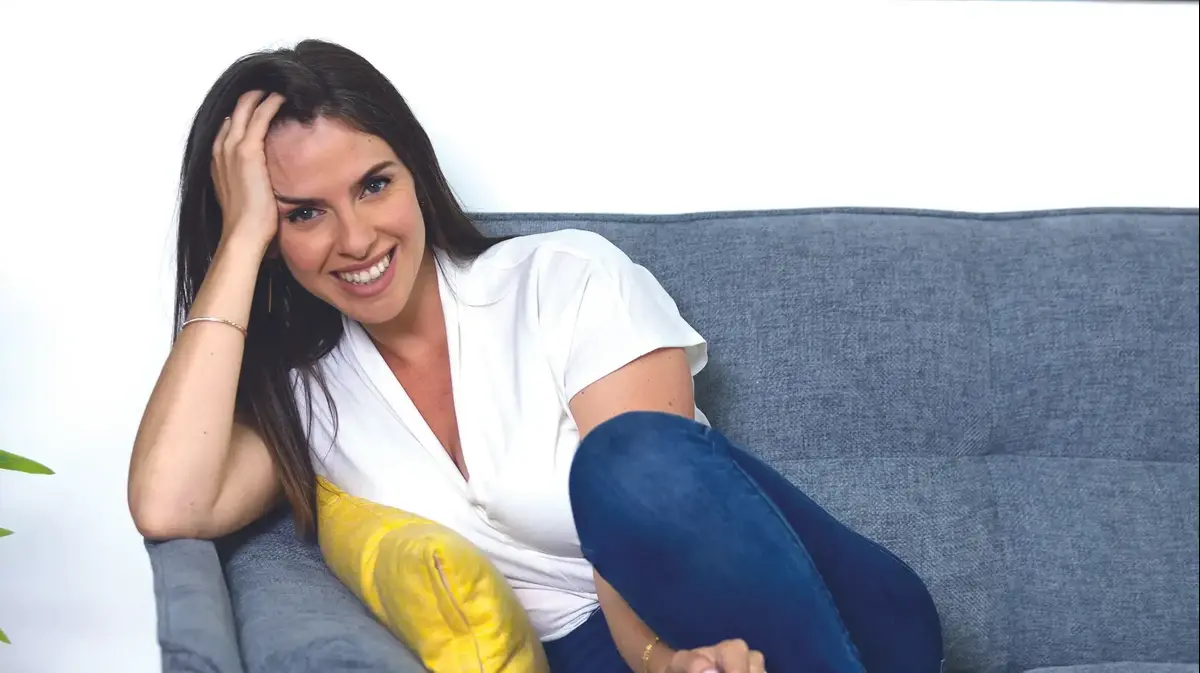Not only a series on Netflix, but also an important export industry from Israel (Photo: courtesy of the Israel Diamond Center)
Marilyn Monroe claimed that diamonds are a woman's best friend, while I, a woman, although I have always had reservations about the unequivocal sentence that does not fit the spirit of the times, but I love jewelry, I too was captivated by the magic of the new Netflix series "Diamonds" and set out to investigate the secret of the magic of the precious stone, which has become one of the significant economic engines of the State of Israel.
There are no natural resources or diamonds for mining in Israel, although once upon a time there will be those who will remember the legend that says that Kishon (yes, yes) has diamonds. A few years ago, additional drilling was carried out in the notorious stream for being polluted, but even these have not yet proven the claim that there are diamond and gemstone deposits at its bottom. Still, how did Israel become the world's fourth largest diamond trading center?
Aviel Eliya, Director General of the Israel Diamond Institute (Photo: Courtesy of the Israel Diamond Institute)
Diamonds and Judaism
"There is, of course, something in the history of the Jewish people that made it a successful local industry," says Aviel Elia, CEO of the Israel Diamond Institute, a mixed government company that promotes trade and export of diamonds from Israel.
"It goes back hundreds of years in Europe, where Jews weren't allowed to buy land, so they traded in diamonds. There are many Jews who have worked in this profession over the years, and already in the 1930s, during the British Mandate, the first diamond dealers arrived in Israel.
At the time, the Mandate opened tariffs on diamond imports, and thus the industry established itself in Israel. To this day in Belgium, you see a lot of ultra-Orthodox Jews working in the field." And those who are not satisfied with the CEO's words are invited to watch the successful series again and see how big deals and power struggles at the top of the industry are decided in the institutions of Antwerp's ultra-Orthodox community.
So how does the diamond industry contribute to the Israeli economy? Elia mentions that in the 1970s and 1980s, the industry was very central to the country's economy. "It's not for nothing that the State of Israel established a body like the Institute," he says. The Israel Diamond Institute is a mixed government company (non-profit) for the public benefit, and the government is part of the company's shareholders. The Israeli government established the company in 1967, together with the Diamond Manufacturers Association, the Diamond Exchange and other bodies. The company's source of funding is from the levy that diamond dealers pay on polished diamonds. The Ministry of Economy collects the levy and transfers it to the Institute for projects to promote industry. "The polishing industry at the time was a huge industry in Israel and we slowly lost this source to India, because wages there are cheaper and most of the polishing industry moved there. Today, Israel focuses mainly on trade."
Make no mistake, this is still $3.5 billion a year, which is 8% of all goods exported in Israel. "In the past, they talked about double-digit numbers of billions of dollars for exports. Today, because of the post-COVID-19 crisis and the changes in the industry, we are talking about "only" 8% – and this is still a considerable amount. It is also an industry with over 10,000 direct employees, 30,000 workers in the additional circle, and it is also the industry with the highest number of Haredi workers in the country. About 15% of the employees at the Diamond Exchange are ultra-Orthodox."
And something else that many probably don't know, but even before the Abraham Accords, some of the ties created between the industry in Israel and the UAE were already in force. "We are members of all kinds of international organizations that represent the diamond industry and see the importance of Israel in the global ecosystem. The TASE and the Institute and Association are recognized all over the world. We are very influential in the industry."
As mentioned, the Israel Diamond Exchange is one of the largest stock exchanges in the world, "When people ask me, what exactly are you doing, I always say that we are like a model of the manufacturing institute. We open markets, exhibitions around the world, we help diamond dealers integrate into exhibitions, and we have collaborations with platforms all over the globe."
If until now the Israel Diamond Institute has focused mainly on B to B activity, i.e., trade between businesses, right now, at the end of May, the doors are also opening to private consumers who crave diamonds and don't know how and what. The Institute is launching, for the first time in Israel, a unique gallery for marketing and selling diamonds from dealers directly to the consumer in the Maccabi building in the TASE complex.
"This is actually the first time that we allow diamond companies to sell diamond jewelry directly to the end consumer," explains Elia, "A customer can come, see a short film about history and tradition at the visitor center, see the squares and diamonds live, and go through the 15 positions of the various diamond companies. This is the Diamond Exchange's Farm to Table."
How has the industry changed over the years?
"The Israeli diamond industry has experienced crises over time, and since 2005 we have seen a kind of decline. We tried to take all sorts of actions to stop it, but market forces, including international ones, were stronger than these. Until COVID-19, the industry experienced a crisis on the one hand, and an interesting increase mainly in the United States where people Allow themselves to purchase more luxury goods. Today, after the coronavirus crisis is largely behind, we are experiencing stabilization. Either way, there are also many companies that have managed to maintain very good stability over the past decade and a half without significant upheavals."
How does the economic crisis we are experiencing now affect the industry, if at all?
"It's still too early to say. Looking back on the COVID-19 crisis, I can say that there was something different in the industry compared to other industries. I assume that a year from now we will be wiser to understand if and how the current crisis has affected the diamond industry specifically. We do see moderation and stabilization of the market today."
Does the cost of living even concern such an industry?
"Less touching. The center in Israel suffers from other problems and challenges, compared to other centers in the world. For example, we see less reassurance when it comes to regulation. In Belgium, for example, there is a dream tax arrangement, here in Israel you pay regular corporate tax, and this makes it difficult to compete with other centers in the world, it also makes it difficult for Israel to trade between European countries, for example.
Look at Dubai, for example, Dubai is a free trade center, it has tax exemptions and many Israeli companies say to themselves: it's a two-hour flight, and without taxes. And you see that this is a center that is growing at extraordinary levels, they have credit from the state on an insane scale."
More in Walla!
10 weeks and you will know how to swim and distance rowing! TI is committed to success!
CONTRIBUTED BY TI SWIM
Pack for you? For the first time, it will be possible to sell diamonds to private customers (Photo: courtesy of the Israel Diamond Institute)
Loved in the world
Still, alongside the fear of losing part of an important engine for the country's economy, Elia is optimistic. "Our tradition, experience and human capital still keep the Israeli Center alive and kicking in front of the world. Israel has opened up a relative and very special advantage when it comes to trading and polishing precious and special stones, as well as the special DNA of Israeli merchants is something that is loved around the world."
Explain, I actually thought it was exactly the opposite"We did a covert survey at some large exhibition to try to understand the status of Israeli traders in the
industry. We asked diamond buyers why they prefer to buy from Israelis, and the answers were that the negotiation experience and reliability are much greater compared to other traders from other countries involved in the industry.
There are not many centers in the world that have established stock exchanges and diamond traders, there are a few centers around the world (the US, Belgium, India and Israel) and Israel is one of these centers. Now a strong hub is starting to grow in Dubai, and there's a huge sales market in Hong Kong, but in terms of strong exchanges, that's what it is."
What are the consumption habits of Israelis?
"Since our industry deals mainly with merchants who sell to high-end retailers and not with end consumers, we checked before opening the gallery what is happening in the local market in terms of consumption habits. We understand that there are special buying habits in Israel, we don't buy very large stones with very high carats like in the United States, for example, but there is a market share here of purchases between NIS 5000-20,000, from half a carat to a carat plus, round and ordinary stones without grandiose things, that's pretty much what you buy here."
What is the story of lab-grown diamonds that have become a trend in the world?
"A lab-grown diamond is a lab-made diamond as opposed to a natural diamond created from the bowels of the earth. Even though it's ostensibly made from the same chemicals, the market sees lab-grown diamonds as something else entirely. Prices are falling, the value is not the same, for example - a lab-grown diamond is one or two percent of the value of a natural diamond.
Unlike maintaining the value of a natural diamond over the years, a lab-grown diamond is worthless in this sense. There is, of course, the story that they tried to sell lab-grown diamonds that are "green" and ecological, but in truth, the process of mining a lab-grown diamond requires enormous electricity output, almost the entire size of the city of Ramat Gan. We're not pushing this product, but there's a market for it, mainly in the US."
How do I know if the diamond I have on the ring is natural or in the lab?
"It's the duty of the dealer who sells it to you to tell you exactly what you're buying. If now a dealer sold you a lab-grown diamond as a natural diamond at the prices of a natural diamond, he cheated you. In the gallery you can find technological equipment that will allow you to examine the diamond. Another thing, in every purchase it is important to ask for a gemological certificate, the price is derived from the parameters indicated in the certificate, carat color, cutting shape and more, and we require the merchants to give the certificate."
This is the time to note that the State of Israel is a signatory to a treaty known as "Kimberley", with the aim of regulating a reliable system that examines the trade in rough diamonds and prevents trade in so-called "blood diamonds". "Israel is among the first to sign the agreement, and it effectively neutralizes trade in conflict diamonds mined in Africa, for example, and finances terrorism, etc. This means that every diamond mined has to come out of a legitimate mine, with a legitimate company with a franchise of a legitimate state. And only diamonds with Kimberly's certificate can enter Israel."
- money
Tags
- Diamonds
- Diamond Exchange
- Export














